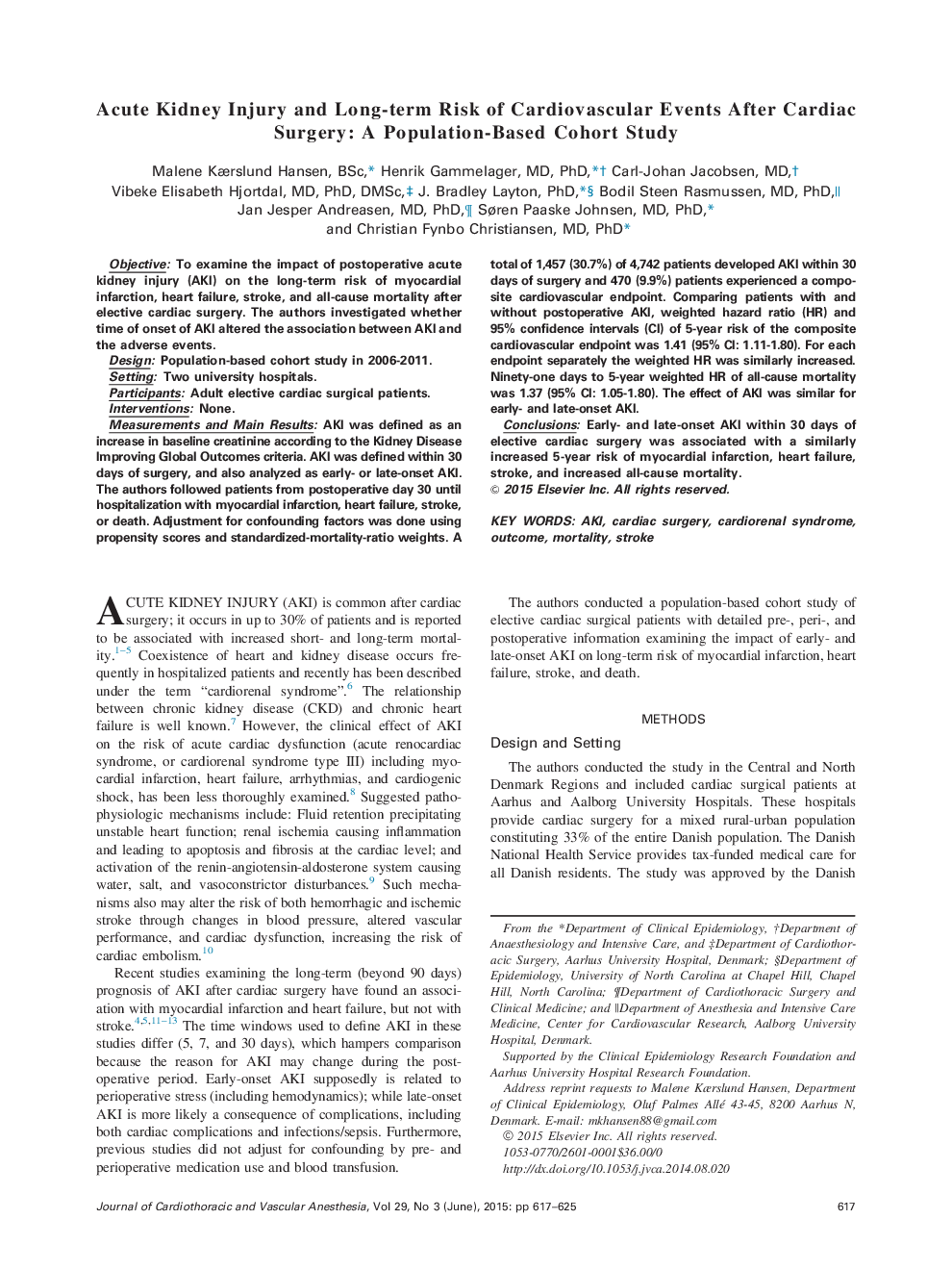| Article ID | Journal | Published Year | Pages | File Type |
|---|---|---|---|---|
| 5883888 | Journal of Cardiothoracic and Vascular Anesthesia | 2015 | 9 Pages |
ObjectiveTo examine the impact of postoperative acute kidney injury (AKI) on the long-term risk of myocardial infarction, heart failure, stroke, and all-cause mortality after elective cardiac surgery. The authors investigated whether time of onset of AKI altered the association between AKI and the adverse events.DesignPopulation-based cohort study in 2006-2011.SettingTwo university hospitals.ParticipantsAdult elective cardiac surgical patients.InterventionsNone.Measurements and Main ResultsAKI was defined as an increase in baseline creatinine according to the Kidney Disease Improving Global Outcomes criteria. AKI was defined within 30 days of surgery, and also analyzed as early- or late-onset AKI. The authors followed patients from postoperative day 30 until hospitalization with myocardial infarction, heart failure, stroke, or death. Adjustment for confounding factors was done using propensity scores and standardized-mortality-ratio weights. A total of 1,457 (30.7%) of 4,742 patients developed AKI within 30 days of surgery and 470 (9.9%) patients experienced a composite cardiovascular endpoint. Comparing patients with and without postoperative AKI, weighted hazard ratio (HR) and 95% confidence intervals (CI) of 5-year risk of the composite cardiovascular endpoint was 1.41 (95% CI: 1.11-1.80). For each endpoint separately the weighted HR was similarly increased. Ninety-one days to 5-year weighted HR of all-cause mortality was 1.37 (95% CI: 1.05-1.80). The effect of AKI was similar for early- and late-onset AKI.ConclusionsEarly- and late-onset AKI within 30 days of elective cardiac surgery was associated with a similarly increased 5-year risk of myocardial infarction, heart failure, stroke, and increased all-cause mortality.
